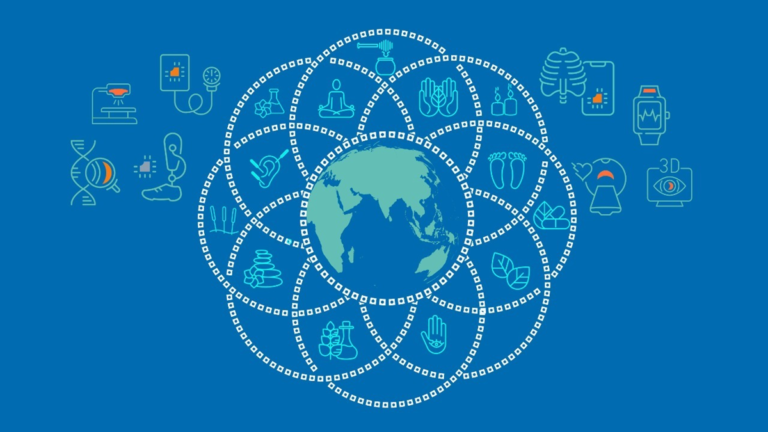It is estimated that 88% of all countries use traditional medicine, such as herbal medicines, acupuncture, yoga, indigenous therapies and others. One hundred and seventy Member States report the use of traditional medicine, and their priority request to WHO is to obtain evidence and data to inform policies, standards and regulatory frameworks for safe, cost-effective and fair. Traditional medicine has been a vital resource for health in communities around the world for centuries, and it still provides a mainstay for some people facing inequities in access to conventional medicine. Sociocultural practices and the biodiversity heritage of traditional medicine are invaluable resources for advancing inclusive and diverse sustainable development. Traditional medicine is also part of the growing, billion-dollar global health, wellness, beauty and pharmaceutical industries. More than 40% of pharmaceutical formulations are based on natural products and blockbuster drugs, including aspirin and artemisinin, from traditional medicine. The contribution of traditional medicine to national health systems is yet to be fully realized, as the millions of accredited traditional medicine workers, facilities, expenditures and products are not fully accounted for. Strengthening WHO’s capacity to meet these knowledge needs will be a key objective of the WHO Global Center for Traditional Medicine (GTMC).
Related Posts
Add A Comment
